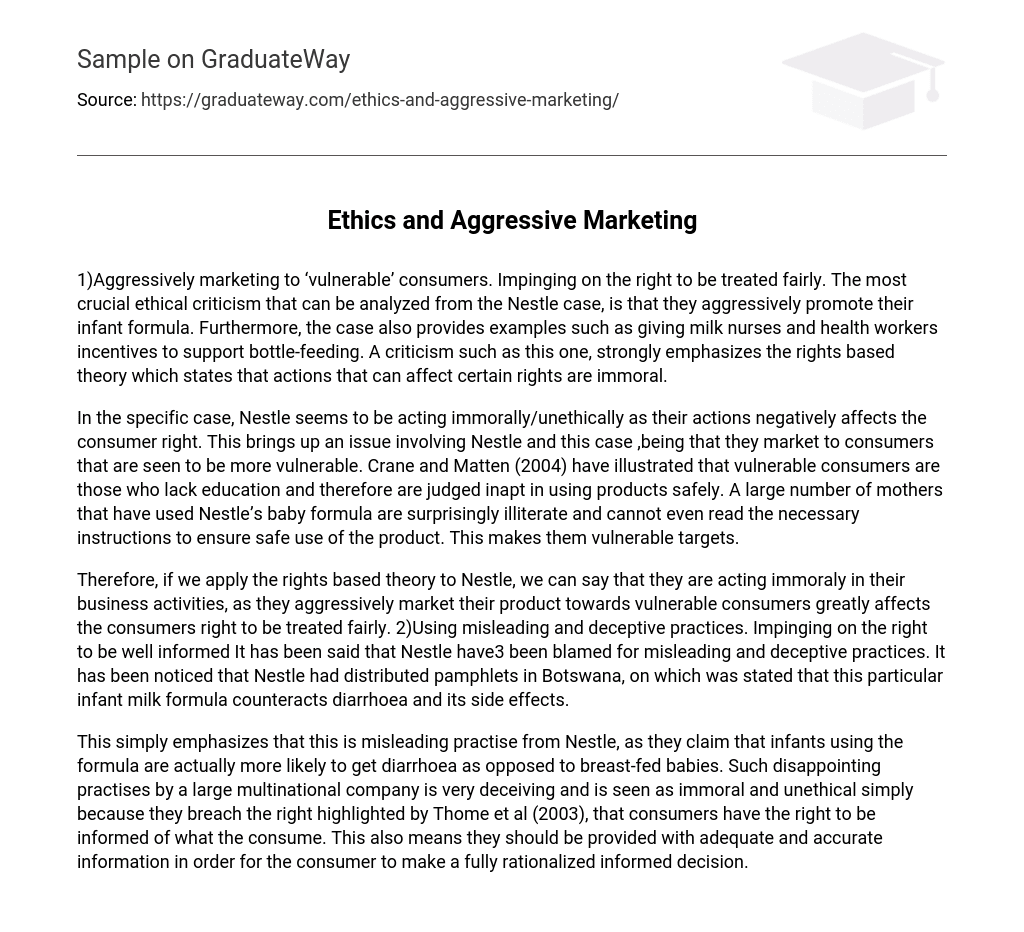1)Aggressively marketing to ‘vulnerable’ consumers. Impinging on the right to be treated fairly. The most crucial ethical criticism that can be analyzed from the Nestle case, is that they aggressively promote their infant formula. Furthermore, the case also provides examples such as giving milk nurses and health workers incentives to support bottle-feeding. A criticism such as this one, strongly emphasizes the rights based theory which states that actions that can affect certain rights are immoral.
In the specific case, Nestle seems to be acting immorally/unethically as their actions negatively affects the consumer right. This brings up an issue involving Nestle and this case ,being that they market to consumers that are seen to be more vulnerable. Crane and Matten (2004) have illustrated that vulnerable consumers are those who lack education and therefore are judged inapt in using products safely. A large number of mothers that have used Nestle’s baby formula are surprisingly illiterate and cannot even read the necessary instructions to ensure safe use of the product. This makes them vulnerable targets.
Therefore, if we apply the rights based theory to Nestle, we can say that they are acting immoraly in their business activities, as they aggressively market their product towards vulnerable consumers greatly affects the consumers right to be treated fairly. 2)Using misleading and deceptive practices. Impinging on the right to be well informed It has been said that Nestle have3 been blamed for misleading and deceptive practices. It has been noticed that Nestle had distributed pamphlets in Botswana, on which was stated that this particular infant milk formula counteracts diarrhoea and its side effects.
This simply emphasizes that this is misleading practise from Nestle, as they claim that infants using the formula are actually more likely to get diarrhoea as opposed to breast-fed babies. Such disappointing practises by a large multinational company is very deceiving and is seen as immoral and unethical simply because they breach the right highlighted by Thome et al (2003), that consumers have the right to be informed of what the consume. This also means they should be provided with adequate and accurate information in order for the consumer to make a fully rationalized informed decision.





